11 Sustainable Wine Subscriptions To Cheers To

Disclosure: Some of the links below are affiliated; we may earn a small commission if you click through and make a purchase. We only ever add brands & products we truly believe in.
The Best Wine Subscriptions for your sustainable lifestyle
Did you know that a lot of wine has stuff added to it? Additives can include yeasts, chemicals, coloring, pesticides, and more. That is *not* something I want to be sipping on. Don’t worry though, these ten sustainable wine subscriptions are coming to the rescue.
From white to red, orange to sparkling, there are an overwhelming amount of wines out there to try. Wine subscriptions offer consumers the chance to try curated, hand-selected wines they might not have access to at their local grocery store or wine ship. Plus, with shipping straight to your door, stocking your wine collection has never been easier. (Pst, don’t worry, some of these subscriptions offer carbon-neutral shipping!)
To truly get a sustainable wine, you gotta go to the source: the grape. The way that wine grapes are farmed, harvested, and then produced into wine are all very important to the overall quality and taste of the bottle. The wine subscriptions on this list know the importance of treating the grape right, with most using organic, biodynamic, and/or regenerative farming methods at their vineyards.
What exactly is natural wine?
Natural wine is pretty similar to organic wine, but it is a big more laissez-faire, if you will. Organic wine doesn’t use any harmful ingredients, and typically doesn’t add or subtract anything from their wine, but they can sometimes use a natural yeast to increase fermentation. Natural wine, on the other hand, is made through “spontaneous fermentation”. That basically means that wineries making natural wine let their grapes work their own magic, monitor it, and then test it to their standards. One of the brands mentioned below, Mysa, has an Ultimate Guide to natural wine on their website. It can give you all the juicy info, but I’ll sum it up: natural wines are categorized by how the grapes were grown and treated to create the bottle you end up enjoying. They’re grown organically or biodynamically and then they are left alone to do their thing - no adding yeast to aid with fermentation or removing anything. And voila - natural wine! Red, rose, white, sparkling, and orange.
Organic versus Biodynamic - what’s the difference?
Organic is a pretty commonly used term, but biodynamic was new to me and might be new to you, too. Let’s take a look at the differences between these two farming methods.
Organic farming is done without using potentially harmful elements like chemicals, pesticides, fertilizers, or any other artificially produced agent. While some fertilizers, pesticides, and chemicals can be made naturally, or without harmful ingredients, most commercial farms use the stuff that damages soil, air quality, and the overall crop.
Biodynamic farming is basically like taking organic farming up a notch. Biodynamic farms work to create a harmonious cycle with the land they grow crops on. They compost, use crop rotation practices, incorporate animals for maintenance, diversity, and manure, among other things. If you want to read more about biodynamic farming, click here.
Enough talk, let’s drink!
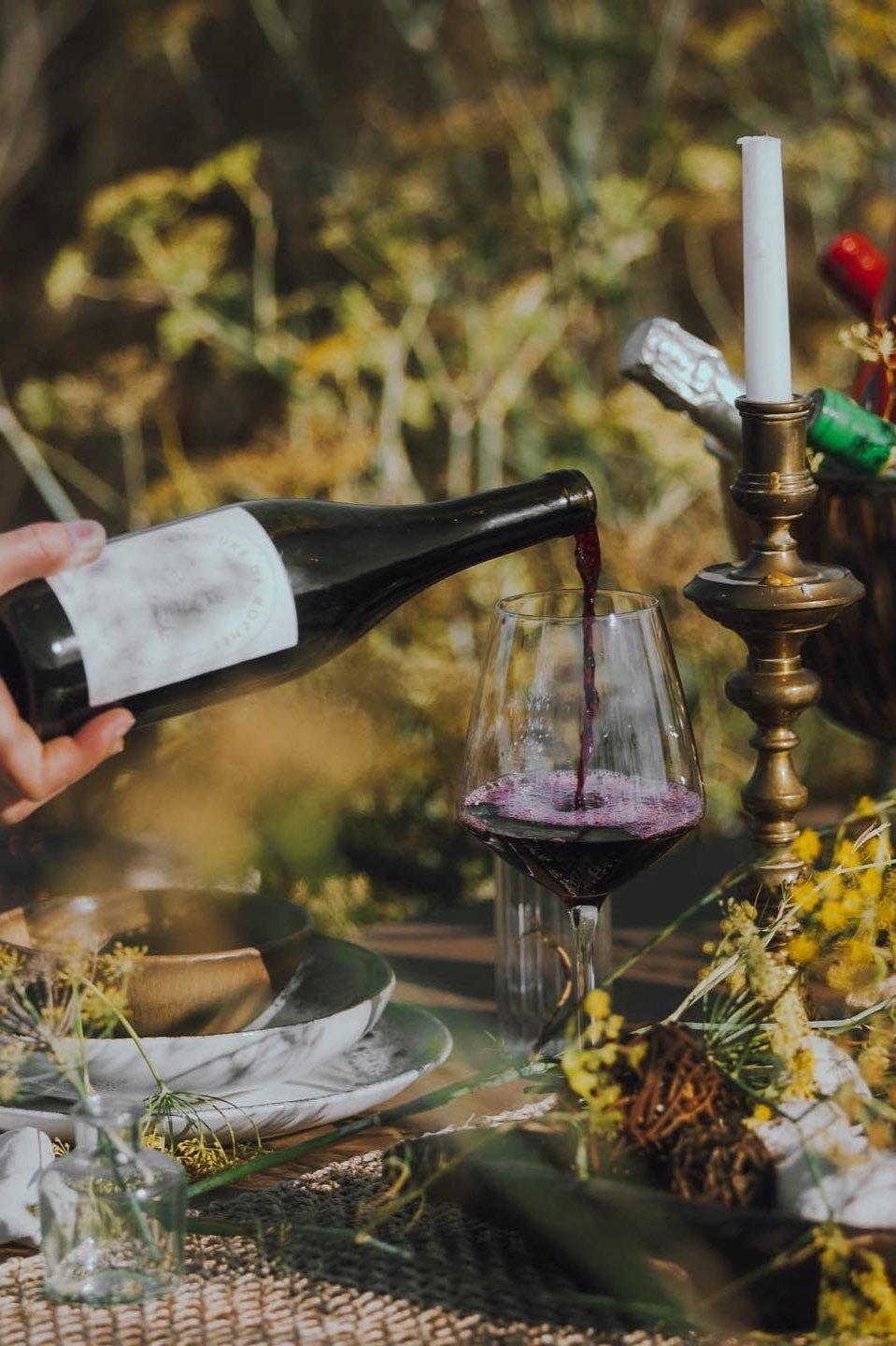
1) Dry Farms Wines
Every bottle in their collection is organically and/or biodynamically grown, has less than 12.5% alcohol content, is friendly to keto, paleo, and vegan individuals, low sulfites, sugar-free, and completely free of toxic additives. It’s a winning checklist! They partner with around 600 small family vineyards throughout Europe. These families create healthy soil through biodiverse farming methods and are working to teach these ways to other farmers. They also only source from farms that “dry farm” (aka, don’t use irrigation), which saves about 16,000 gallons of water every single year. Drink up!
Shop Dry Farm Wines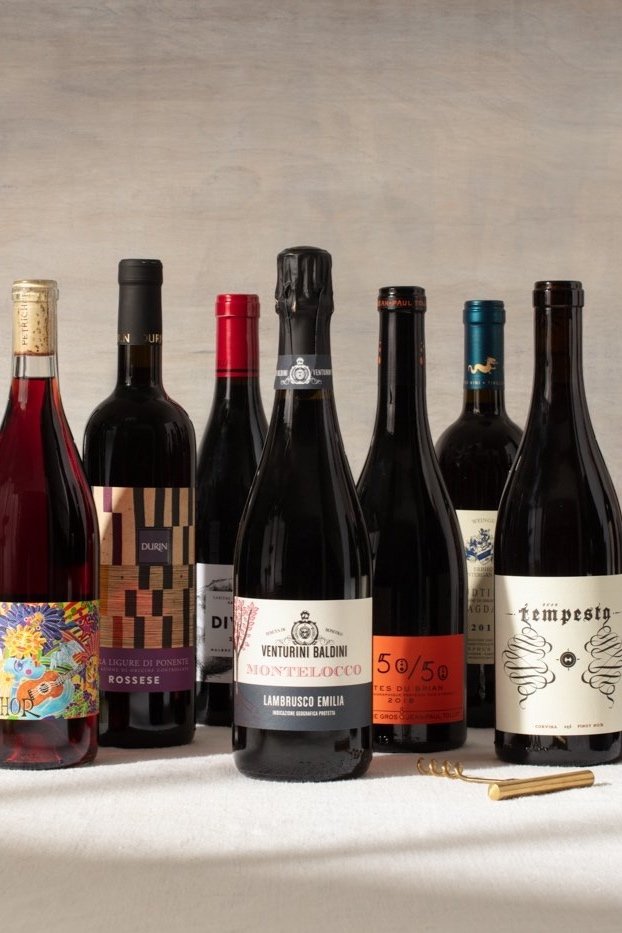
2) Plonk Wine club
Plonk is your go-to for rare, sustainably grown, boutique wines from around the world. Founded by Etty Klein, who has a lot of press coverage - like Top 40 Under 40 Tastemakers, Online Impresario by Food and Wine, you get the picture - all of their wines are grown naturally using organic and biodynamic methods. They offer a mixed, a red, and a white club. There is a lot of flexibility with these subscriptions, too. You pick the wine club option you’d prefer, choose from four, six, or twelve bottle counts, and you can pay month to month, or choose a prepaid method for every three, six, or twelve shipments. It’s all worked out, you just have to sit back and sip!
Shop Plonk Wine Club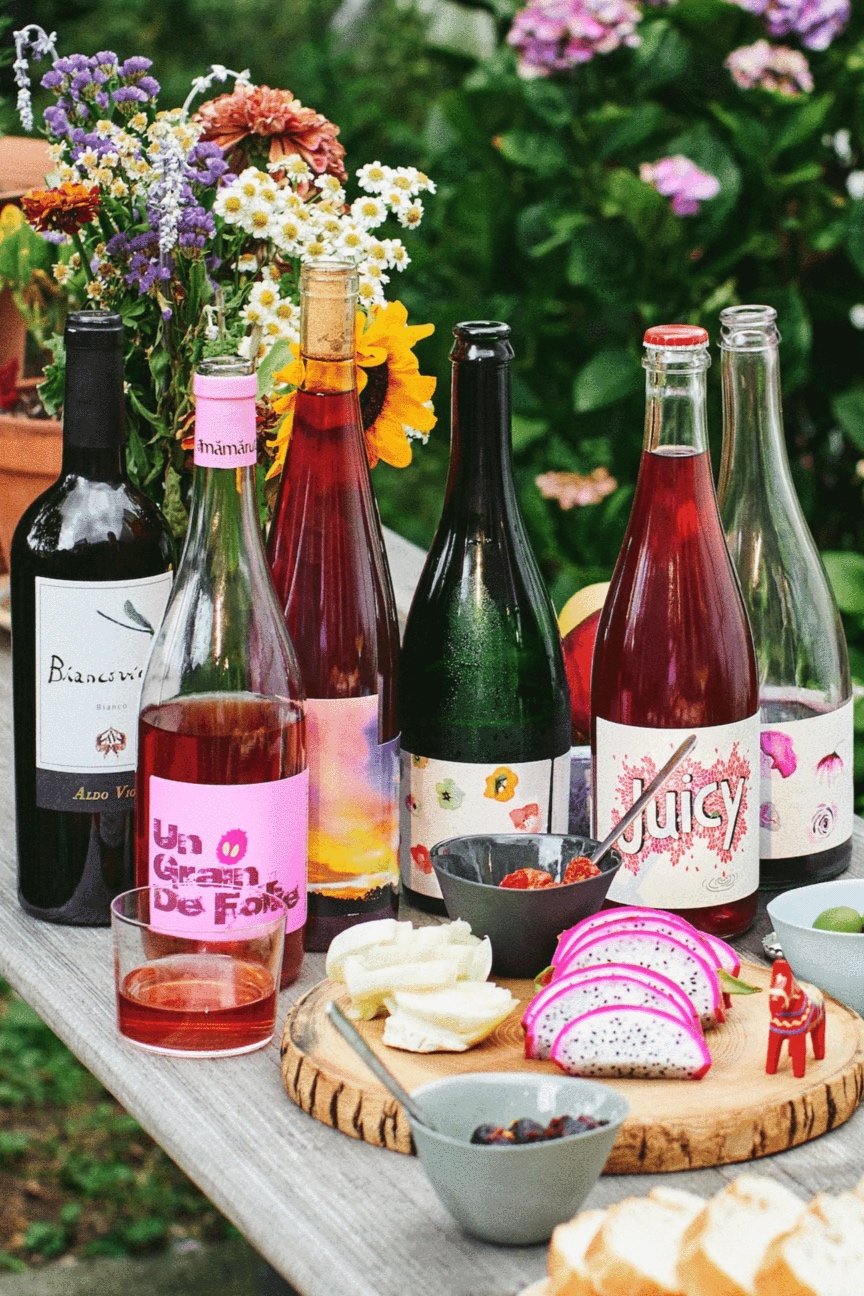
3) Mysa
This female-founded small business is all about natural wines. They also offer individual tasting videos for each wine shipped out that month, for a more intimate experience - it’s like visiting a local wine shop without having to take off your pjs! Though they are a small business, they are mighty! They are a 1% For The Planet partner, and they partner with Carbon Fund to help offset the carbon footprint of shipping unique wines to your door. Holly, the founder, also writes about sustainability within the natural wine industry on Porto Protocol. As a female-founded company, they are all about empowering other women in the wine industry. They work with Color of Change, The Roots Fund, and Lift Collective, to name a few. They offer wine club options that range from $85-$125.
Shop Mysa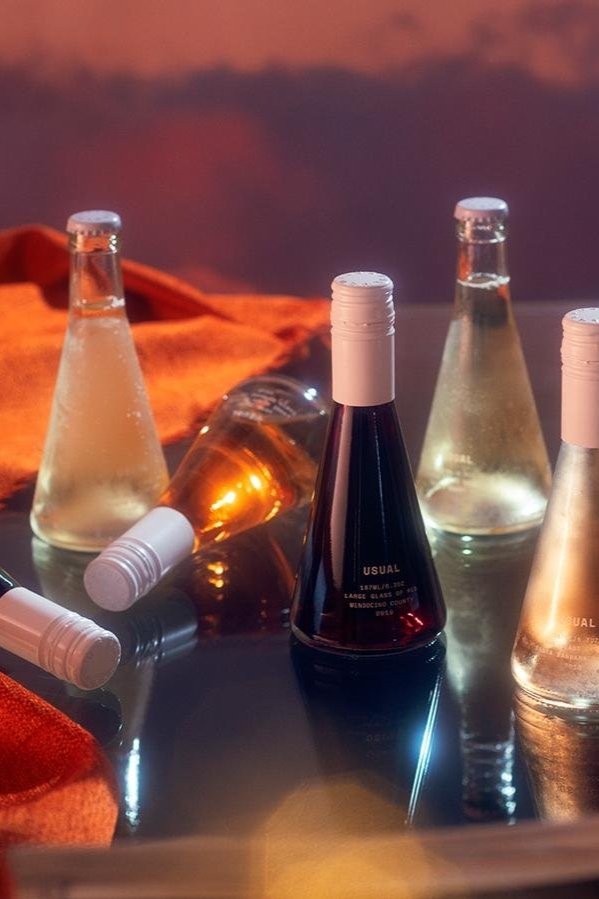
4) Usual Wines
Do you know those cute miniature bottles of wine that are actually never that good? Usual Wines solves that problem. They create generous single-pour bottles for smaller servings that are always fresh. They don’t skimp anything just because the bottle is smaller, either. Their wine grapes are sustainably farmed in California. They have monthly subscription options, too, and ship within the US (with some exclusions). While they aren’t made from post-consumer materials, each bottle is completely recyclable! Talk about the perfect gift for birthdays, bridesmaids, or anyone who loves a good glass of wine!
Shop Usual Wines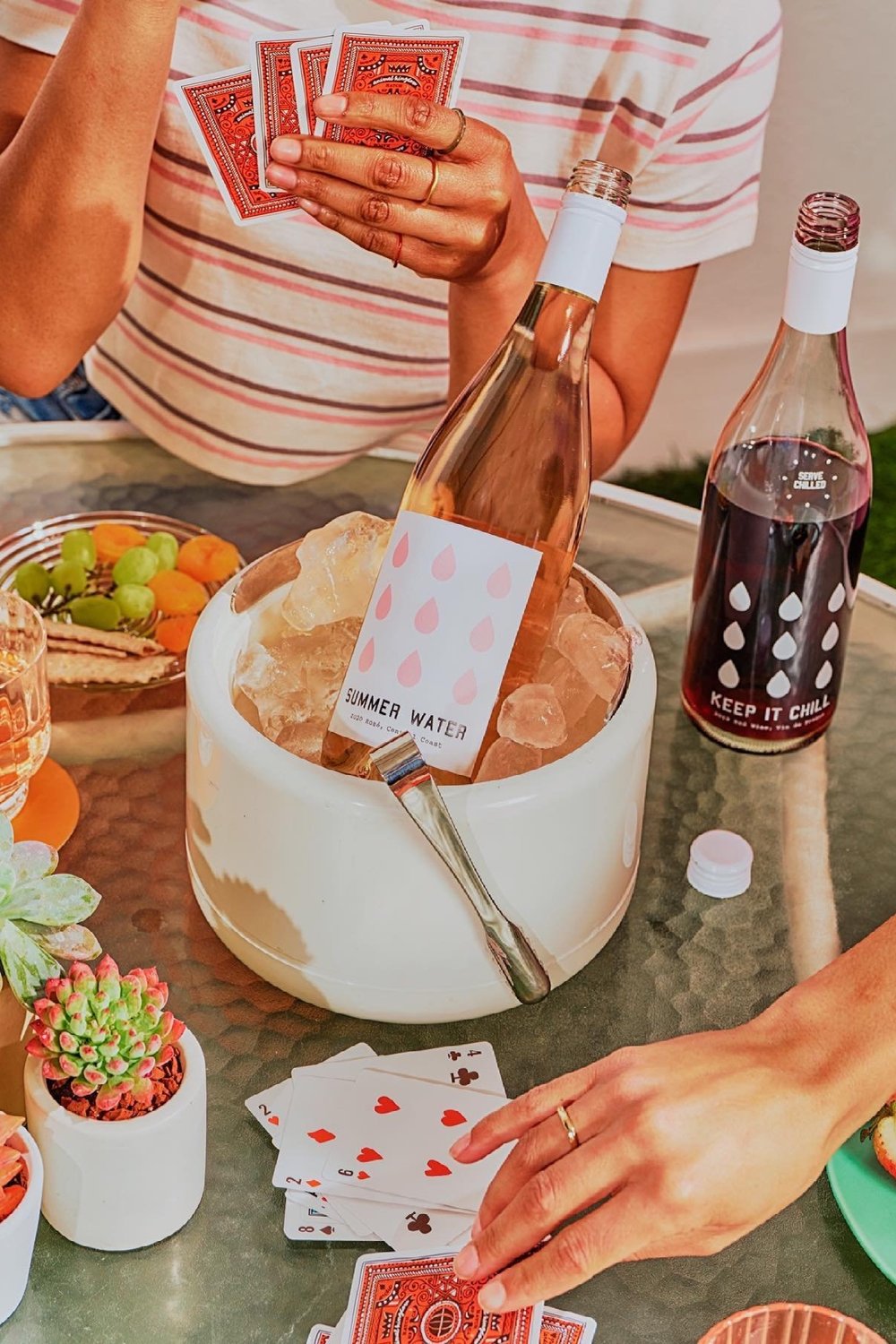
5) Winc
Winc is doing something different. They’re the first data-driven wine subscription company, and Winc Shares, their investment program, invites their consumers to invest in the company making the wine they love. You scratch my back (with delicious wine), I’ll scratch yours (by investing)! They also offer flexible subscriptions you can pause or cancel anytime, and a system to rate your wines to help you remember which ones you like to develope your palette, so they can recommend better wines in the future. Their vineyards practice minimal intervention winemaking in Santa Barbara, CA. By the end of 2021, they plan to have 75% of their wines made from sustainably farmed grapes. They’re making sustainable wines super accessible, both with affordability, shipment options, and the chance to make money loving what you drink!
Shop Winc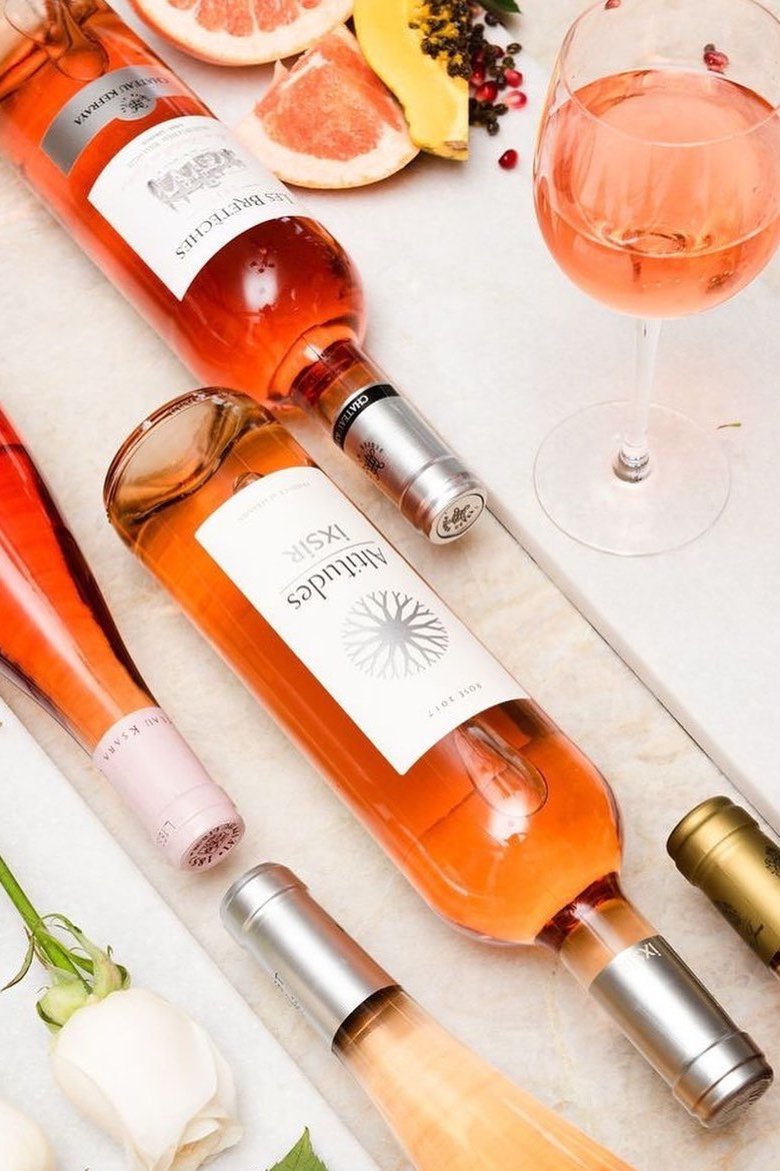
6) Cellars Wine Club
Cellars Wine Club is family-owned and operated since 1999 out of Washington’s Woodinville wine country, and they’re *all* about giving back. For each purchase, whether individual bottles or their wine club (with options from $29-$79), 15% is donated to a nonprofit Cellars has partnered with - and you get to pick which cause means the most to you! They feature nonprofits like Soles for Souls, The Atlanta Children’s Center, Endangered Species International, and so many more. Put your money where your mouth is, and enjoy some wine while you’re at it!
Shop Cellars Wine Club
7) Dreaming Tree Wines
This California-based winery is founded by Dave Matthews (yes, that Dave Matthews) and wine connoisseur Sean McKenzie, a New Zealand native. They have donated over $2,000,000 (yes, million!) to environmental organizations like The Wilderness Society, The Nature Conservancy, Living Lands and Waters, and others. Dreaming Tree Wines is a Certified California Sustainable Winegrowing winery, and they use solar energy and report their greenhouse gas emissions as a part of the Carbon Disclosure Project. While they don’t have a wine club (yet), they do offer gift sets online.
Shop Dreaming Tree Wines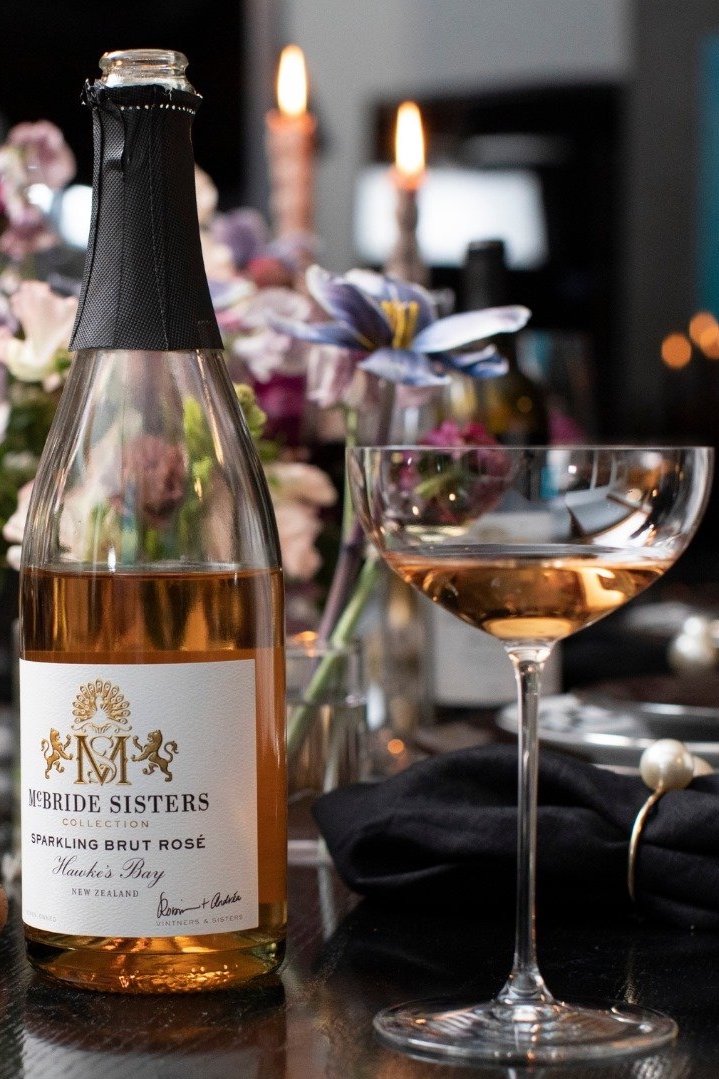
8) McBride Sisters
Half-sisters Andréa and Robin grew up having never met each other on opposite sides of the globe: California and New Zealand. But they were both drawn to the wine industry, and eventually found their way together to create McBride Sisters. They are the largest Black-owned wine company in the US. In 2019, they launched SHE CAN with a purpose to close the gender and race gap in leadership positions normally dominated by men. The funds raised through this initiative go to funding leadership training and scholarships for girls and women. These wines and some seltzer options are sold in aluminum cans - more lightweight for shipping and infinitely recyclable!
Shop McBride Sisters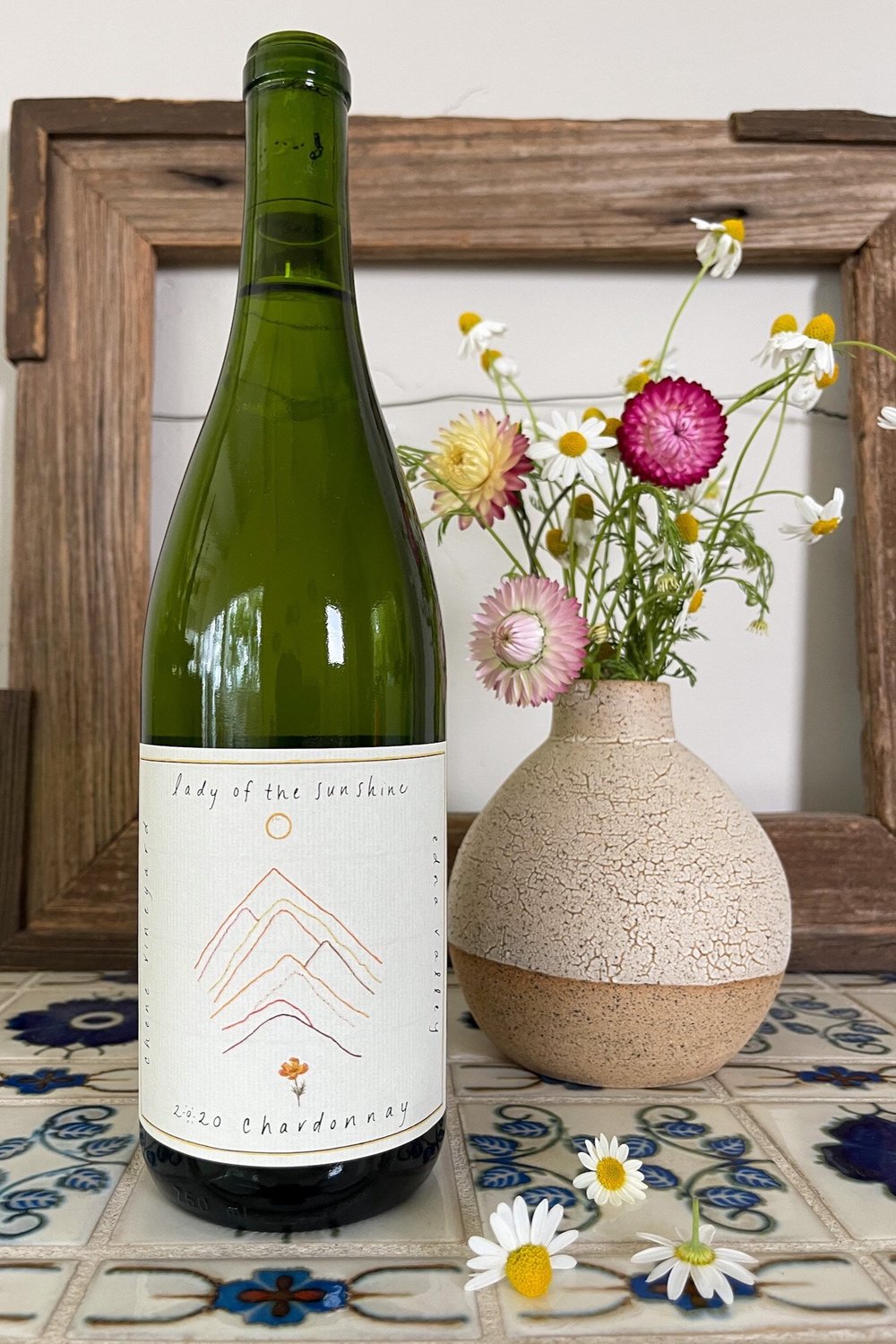
9) Lady of The Sunshine
Started in 2017 by second-generation biodynamic winemaker Gina Giungi, Lady of The Sunshine is meant to bring natural wines farmed with regenerative, organic, and biodynamic methods to people around the country. The Chene Vineyard that Gina took over in 2018 was awarded a Demeter certification for biodynamic farming practices in June 2020. These wines are unfined and unfiltered and unbelievably made with love and intention. This winery ships to their wine club bi-annually, and you have the option to choose six or twelve bottles for the shipments, with prices ranging from $150-$375.
Shop Lady of the Sunshine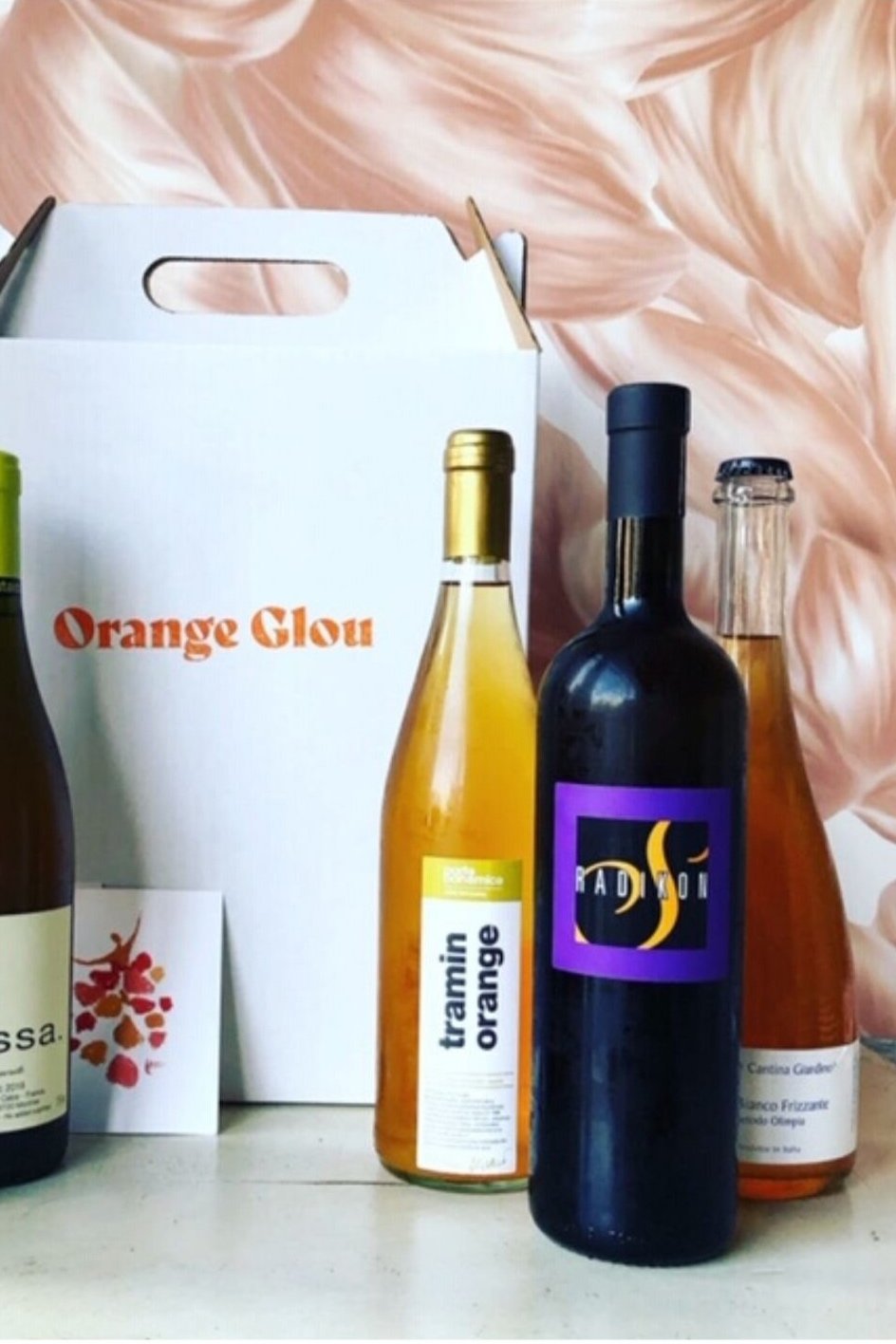
10) Orange Glou
Sommelier Doreen Winkler founded Orange Glou in New York to offer people a subscription focused solely on skin-contact wines. People can opt-in to receive three ($105) or six ($195) bottles of orange wine each month, handpicked by Doreen. She picks these orange wines each month from wineries across the country that are practicing sustainable, biodynamic winemaking. Think of it like your BFF picking the best of the best for you each month, except this BFF knows everything there is to know about orange wine and has dozens of connections within the wine industry.
Shop Orange Glou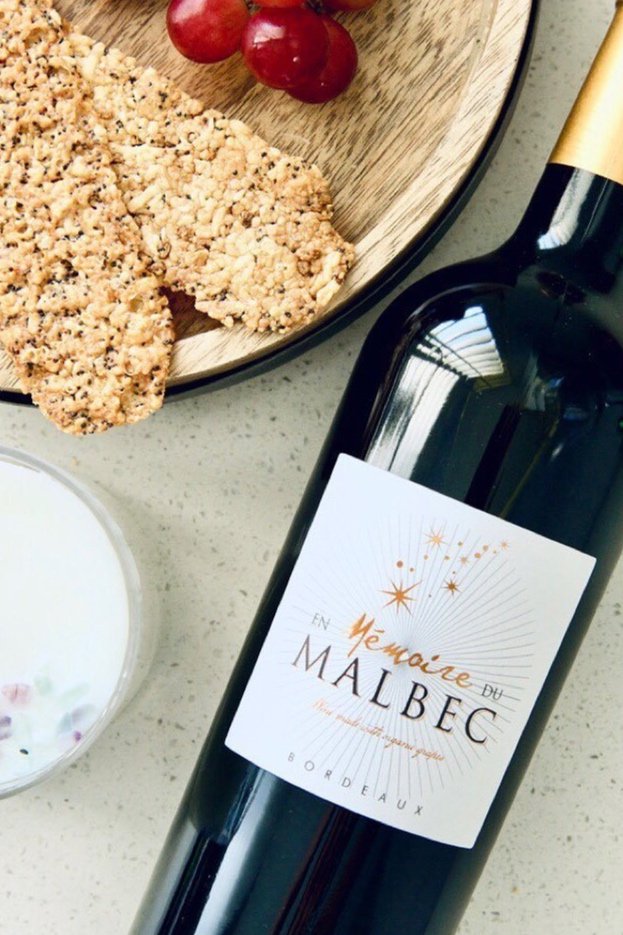
11) Organic Wine Exchange
The Organic Wine Exchange focuses on keeping their consumer informed on organic wine and everything that encompasses. The “Learn” tab on their website has massive amounts of information on everything from events they’re hosting to facts and myths about winemaking to recommended pairings. They also only list organic wines on their website, so you know that any purchase from their site won’t have any additives. They offer four wine club options - Organic, No Sulfites Added (NSA), Biodynamic, and Vegan. Within those options, you can pick the wine type, the bottle count (three, six, or twelve), and the frequency of orders (monthly or quarterly).
Shop Organic Wine Exchange
About the Author:
Paige Annelayne is a freelance writer and digital media specialist currently based in Alabama, who loves to cook, learn about intersectional sustainability, and read a lot of books. Her cat, Gnocchi, her plants, and a good cup of matcha bring her joy. You can connect with Paige on Instagram @vitality.blog and at www.vtltyblog.com
MAKE SURE TO PIN THE PHOTO BELOW TO SAVE THIS POST FOR LATER!
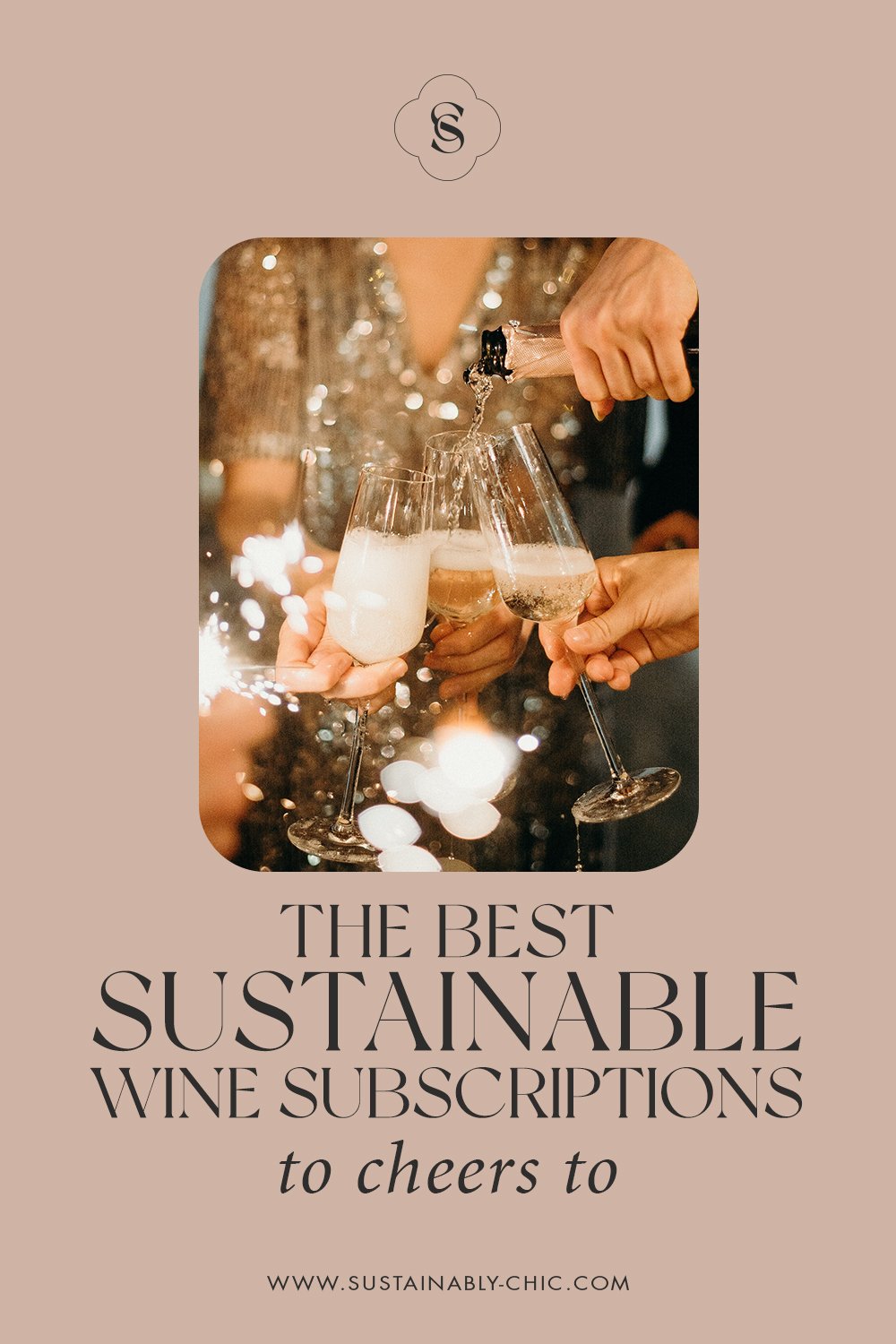
WANT MORE SUSTAINABLE BRANDS? VISIT OUR BRAND DIRECTORY!
Our Brand Directory is home to hundreds of sustainable brands, from makeup to cleaning supplies, from underwear to shoes. We have broken everything down by category for easy shopping, along with discount codes unique to Sustainably Chic viewers.
Shop the Sustainable Brand DirectoryRELATED READING YOU MAY ALSO ENJOY:
#Content-Attribution#
Content Creator: Paige Annelayne
Date:
